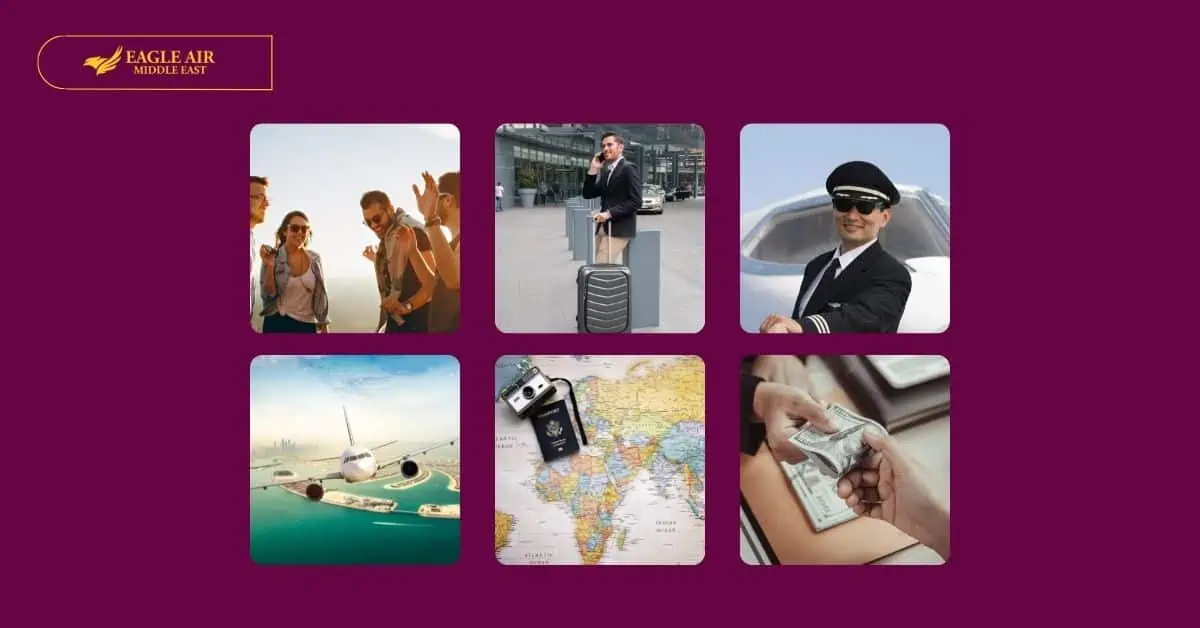People are seeking jobs that pay them a lot of money and fulfill their passions at the same time. That’s what the aviation profession does!
It provides you with a wide range of skills and benefits that make it unique from other jobs, in addition to several features that can be used in many different ways.
With technology spreading throughout the world and side businesses growing, can a pilot run another business in addition to his work in aviation? That is what we will discover shortly.
Advantages of being a pilot
Besides performing the common tasks of a pilot, such as takeoff and landing, pilots will also check the engine and all of the equipment in the aircraft, coordinate with other pilots, and so on.
This makes them far more than just a pilot, but a manager who is able to completely manage the work and has all the skills necessary to accomplish their tasks.
In the next section, you will learn the most important perks that you get from being a pilot, along with the most popular skills you learn that can also be applied to other aspects of your life, such as your career or your daily activities.
1- Flexible working hours
If you find it hard to keep fixed work hours and commit to other obligations throughout the week, then being a pilot gives you the advantage of flexible working hours that enables you to remain focused on work while still being able to accomplish other goals.
Unlike other jobs, pilots can choose their own working hours.
Most companies also allow a maximum of 1,000 hours of flying per year for their pilots, giving them more time for other tasks in their work, or even more vacations.
2- Connecting with people
As a professional pilot, you’re likely to meet many people from the same country or from abroad, in addition to getting to know many of the other pilots and most of the airline crew members.
All of that helps you learn communication skills with others inside or even outside the workplace; you build a network of social relationships and you meet people from many different countries.
So, you’ll automatically learn how to effectively communicate with others, which is one of the most important benefits you gain from being a pilot, and one that you will need to have a successful career.
3- Lifelong learning
When you graduate from flight school, the learning process doesn’t stop. It continues inside the field of work itself.
Therefore, you can learn to communicate with people better as well as improve your flying skills.
Moreover, you’ll learn how to invest your time correctly, and have the opportunity to get a benefit that few people get, which is knowing about different cultures and countries around the world.
However, while getting a new or different job can be stressful and takes more time to learn, pilots save time because they learn the most important skills from the beginning in what is called soft skills or transferable skills.
Skills you gain as a pilot
Communication Skills
It’s extremely important for a professional pilot to develop effective communication skills since he or she needs to communicate continuously with the crew and other pilots as well as with passengers from different countries.
All of this equips the pilot with the skills for effective communication, from listening and starting a conversation to choosing the appropriate tone of voice.
Emotional intelligence
Pilots need to be socially intelligent and able to manage a wide range of situations easily.
They learn this skill from the start of their training at the academy.
As an example, after studying and applying the most important principles of flying, a pilot begins to remember what they had learned, communicate with the instructor, and fly the plane seamlessly while also developing their social intelligence along the way.
And it doesn’t stop here. Rather, they develop this skill over time as they gain practical experience, observing and paying attention to more details to become more accurate.
Public speaking skills
Public speaking skills are crucial to helping you advance your business significantly.
It requires the speaker to be confident in their speech and learn how to communicate with the audience confidently and effectively.
The aviation profession helps you develop this skill because you communicate with many people, and all pilots go through situations where they need to speak confidently in front of other people, so it becomes easier for them as they progress in this profession.
Multitasking skills
This skill indicates your capability to do more than one task at once. Nevertheless, it’s not a simple skill, as you need to divide your attention to all the different tasks that you do all at once.
Pilots, for example, need to be aware of the weather conditions and the equipment in front of them in addition to flying the plane.
You can do all of these tasks seamlessly and easily because the aviation profession gradually teaches you how to handle multiple tasks at once.
In other words, you’ll become a master of this skill rather than having to put a lot of effort into learning it.
This brings us to another key point of this skill, which is the awareness of time.
In multitasking, it doesn’t mean that you do the tasks in a long period of time, but rather you are saving time and giving each task the time and attention it needs.
All of this makes you aware of the importance of time and how to arrange and plan effectively.
Calmness and situation awareness
Pilots always stand out for their calmness, and this is because they develop this skill from the beginning of their flight training.
Calmness is accompanied by awareness of the situation, and so a professional pilot is able to grasp everything around them and effectively assess the situation, which enables them to find solutions automatically and rapidly, which is called readiness and intuition.
It might surprise some people to learn that quick thinking comes naturally when you work in aviation!
This is because a pilot is trained to focus on every detail around them and react quickly, in addition to learning other skills such as critical thinking and the ability to solve problems quickly.
Can a pilot run another business besides his primary one?
Yes, a pilot can be a manager or an entrepreneur outside of their primary aviation jobs.
A pilot may do this in addition to their basic job because they don’t need to get another job for the sake of money since they are already earning a lot of money through their aviation job.
However, technology has made this process easier.
For example, a pilot can work in another field, such as creating an aviation blog where they can share their experiences in this field, or take on a job in another field, such as working in the family business.
This way, a professional pilot can support the family business and pursue their love of flying at the same time.
But how can they do that?
How can a pilot use their skills in other jobs?
As we’ve already seen, all the skills and features we’ve discussed already apply to other jobs too!
When searching for jobs like sales or human resources, you will find they require candidates to possess listening and communication skills, public speaking skills, as well as social intelligence, and the ability to handle a number of tasks, coordinate between them, and manage time.
All these skills you’ve already learned as a pilot can easily apply in a variety of other jobs.
Pilots’ flexible schedules also help! Since they have no fixed daily hours at work, they can divide their day between flying and working a side job.
So, to answer the question of how can a professional pilot run another business, we must say that it is very easy to become involved in other fields beyond the aviation job.
Start your journey now!
If you’ve ever dreamed of flying around the globe, then you should fulfill this dream right away with us!
Eagle Air School has been graduating generations of professional pilots for more than 10 years, and now is your chance to become one of them.
Join Eagle Air today and become a successful pilot in just 18 months.



